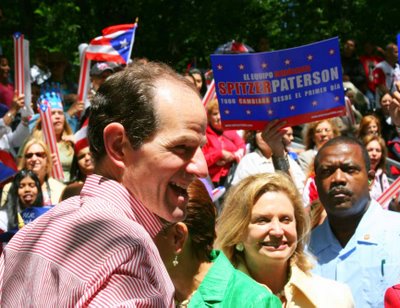What exactly is the problem with the economy in Upstate New York?
August 2, 2007
By ROBERT WARD.
Something’s wrong. Particularly in the regions that lie to the west of Albany, out along the Thruway corridor to Western New York and down along the Southern Tier, new job growth has been weak for more than a decade now. You can see the problem most clearly in cities from Schenectady to Utica, Rochester and Buffalo. But other cities such as Hudson, and rural areas -- from the Catskills to the Adirondacks, and in the middle of the state -- are suffering as well.
You can measure this problem in employment numbers that show Upstate New York lagging far behind the rest of the nation. On a more personal level, groups that serve the needy, such as the Salvation Army and Catholic Charities, tell the painful human stories of families who go without life’s necessities and young people with limited opportunities. One of the most pointed characterizations came during last year’s gubernatorial campaign, when Eliot Spitzer said that much of Upstate New York resembles the poorest regions of Appalachia.
Now, a study from the Buffalo branch of the Federal Reserve Bank of New York sheds new light on the problems of the Upstate economy.
Business leaders, editorial writers and political candidates have talked for some time about the “brain drain” from Upstate. By that, they mean the loss of talented young people who go elsewhere in search of brighter prospects for the future. According to the new study from the Federal Reserve Bank, roughly one in seven college-educated residents of Upstate left the region during the latter half of the 1990s. Given the increasingly important role that advanced learning plays in the modern global economy, all those moves out of Upstate add up to a real loss.
But, interestingly, the Federal Reserve study found that Upstate’s “brain drain” was not significantly worse than those in most other states. Anywhere you go in this country, at any given time, there’s always a lot of churn in the economy – and that includes some people who are making a change in location. According to the experts at the Federal Reserve, the percentage of highly educated residents who moved out during the late 1990s was just about the same in Upstate New York as it was nationally.
Now, that doesn’t mean all the talk about Upstate’s economic problems is wrong. While the proportion of college-educated individuals leaving Upstate New York was close to the national average, the proportion who moved *into* the region was very low. In fact, it was the lowest in the country, even well below states such as Louisiana and West Virginia that many New Yorkers would consider economic backwaters.
When you combine all those moves out, and all the moves in, you get what economists call a net migration rate. Where would Upstate rank on that measure? Second worst in the country.
What’s the bottom line? Throughout most of Upstate New York,college-educated adults are not moving into the region fast enough to offset the larger numbers who are moving out. The experts at the Federal Reserve added this observation: “Research suggests that job opportunities and local amenities influence choice of location. While regional amenities such as a favorable climate, cultural offerings, and family and social networks are attractive forces, they may not be enough to attract college-educated workers. Similarly, job prospects may not be sufficient to sway a relocation decision if a region is not perceived to be a desirable place to live. Both factors are important policy considerations.”
This new information doesn’t solve the chronic problems of the Upstate economy. But it might help to point policymakers and private-sector leaders in the right direction as they look for solutions.
This interesting article can be found here:
Robert Ward is deputy director of the Nelson A. Rockefeller Institute of Government, the public-policy research arm of the State University of New York. He is also author of New York State Government: Second Edition, published by the Rockefeller Institute Press.























































